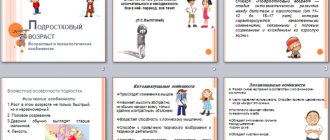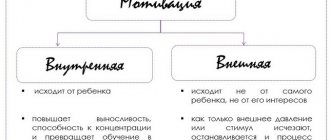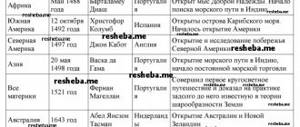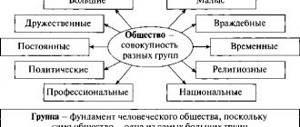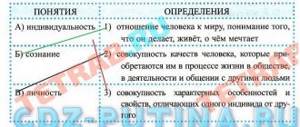Law and teenager. For students in grades 5-7. What is law? - presentation
Law and teenager. For students in grades 5-7
What is law?
The Criminal Code is a systematic legislative act; determines which socially dangerous acts are criminal and establishes penalties for them, as well as other measures...
Article 213. Hooliganism
Article 214. Vandalism Vandalism is desecration of buildings or other structures, damage to property on public transport or in other public places
Article 245. Cruelty to animals Offending small ones will not make you strong Cruelty to animals resulting in death or injury, if this act was committed out of hooligan motives, or using sadistic methods, or in the presence of minors.
Article 207. Knowingly false report about an act of terrorism Knowingly false report about an impending explosion, arson or other actions that create a danger of death, causing significant property damage or other socially dangerous consequences.
Article 162. Robbery Robbery is an attack for the purpose of stealing someone else’s property, committed with the use of violence dangerous to life or health, or with the threat of such violence.
Article 116. BEATS. Beating or committing other violent acts that cause physical pain.
Article 119. Threat of murder or infliction of grievous bodily harm. There was a threat of murder or harm to health, and there was reason to fear that this threat would be carried out.
Article 129. Libel. Slander is the dissemination of deliberately false information that discredits the honor and dignity of another person or undermines his reputation.
Article 130. Insult Insult is humiliation of the honor and dignity of another person, expressed in an indecent form.
Article 158. Theft. Theft is the secret theft of someone else's property.
Article 228. Illegal acquisition, storage, transportation, production, processing of narcotic drugs, psychotropic substances or their analogues.
Article 230. Inducement to use narcotic drugs or psychotropic substances.
Living with the LAW in friendship means being happy in life!
The presentation uses materials from the book “On the Law for Children. Criminal Code", St. Petersburg, 2009. Author: Director of the St. Petersburg Institute of Psychology of Tolerance Dmitry Rytov. Drawings by artist A.V. Kirichenko. The following people worked on the presentation: Dmitry Korovin, 7th grade student, Daniil Svetkin, 7th grade student of Municipal Educational Institution Secondary School 1 of Sayanogorsk. Head: Dobraya T.V., Deputy Director for VR.
Law is a set of generally binding norms, the effect of which is ensured by the power of the state.
Hooliganism is an attack on public order Article 213 “Hooliganism”: ensuring public safety, that is, the totality of social relations that ensure safe living conditions for each member of society, public order Compulsory educational measures may be applied to minors. The following types of punishments are provided for minors: fine; deprivation of the right to engage in certain activities; compulsory work; correctional work; restriction of freedom; imprisonment for a certain period.
Article 214. Vandalism If you do something bad, don’t expect good. A fine of up to 40 thousand rubles, or compulsory labor from 120 to 180 hours, or correctional labor for up to 6 months, or arrest for up to 3 months (from 14 years of age) is imposed.
Article 245: cruelty to animals Punishable by a fine of up to 80 thousand rubles, or correctional labor for up to one year, or arrest for up to 6 months.
Article 207. Knowingly false report of an act of terrorism Punishable by a fine of up to two thousand rubles, or correctional labor for a term of one to two years, or arrest for a term of 3 to 6 months, or imprisonment for a term of up to three years (from 14 years old)
Article 162: robbery Punishable by imprisonment from 3 to 8 years with a fine of up to five hundred thousand rubles per month (from 14 years of age)
Article 116: beatings Punishable by a fine of up to 40 thousand rubles, or compulsory labor for a period of 120 to 180 hours, or correctional labor for a period of up to 6 months, or arrest for a period of up to 3 months.
Article 119. Threat of murder or causing grievous bodily harm Punishable by restriction of freedom for a term of up to 2 years, or arrest for a term of 4 to 6 months, or imprisonment for a term of up to 2 years
Article 129. Libel. Punishable by a fine of up to 80 thousand rubles, or compulsory labor for a period of 120 to 180 hours, or correctional labor for a period of up to one year.
Article 130: insult Punishable by a fine of up to 40 thousand rubles, or compulsory labor for up to 120 hours, or correctional labor for up to 6 months.
Article 158. Theft Punishable by a fine of up to 80 thousand rubles, or compulsory labor for a term of up to 6 months to one year, or arrest for a term of 2 to 4 months, or imprisonment for a term of up to 2 years. . (from 14 years old)
Article 228. Illegal acquisition, storage, transportation, manufacture, processing of narcotic drugs, psychotropic substances or their analogues is punishable by a fine of up to 40 thousand rubles, or correctional labor for up to 2 years, or imprisonment for up to 3 years.
Article 230. Inducement to use narcotic drugs or psychotropic substances. Punishable by restriction of freedom for a term of up to three years, or arrest for a term of up to 6 months, or imprisonment for a term of up to 5 years.
Educational presentation: “Guilty-answer” (7th grade, social studies).
#7th grade #Social studies #Educational materials #Presentation #Organizer of extracurricular and extracurricular activities #Social educator #Methodologist #Class teacher #Subject teacher #Psychologist #School education
Guilty - answer Social studies lesson in 7th grade Author: Pavlosyuk V.A., MBOU "Tuchkovskaya Secondary School No. 1"
Viewing a fragment of the cartoon “Uncle Styopa” Questions: What can you say about the behavior of the cartoon characters? Why do you think the boy's behavior is bad? Will the boy be held accountable for his actions? If so, why?
“Guilty – answer” Topic: 11/12/19
Examples of law-abiding and illegal behavior. Distribute them. 1. Vera Ivanovna paid the tax for the land plot. 2. The taxi driver stopped at a red traffic light. 3. A young man scratched some kind of drawing on the fender of someone else’s car. 4. Citizen R. stole a wallet with money from a passenger. 5. The passenger paid for travel on public transport.
illegal behavior - prohibited by law, causes harm to society. law-abiding behavior - complies with the requirements of the law, useful for society.
Punishment depends on the harm caused by the offense. Depending on the degree of harm of the violation: Crime Misdemeanor Lesser degree of public danger.
Offenses Crime Misdemeanor Types against human health and life, against ……….. Which laws contain a list of violations and types of punishments? Punishments Textbook p.52 “The law punishes.” Filling out the table. Types of offenses
Offenses Crime Misdemeanor Types against human health and life, against honor and dignity, against the rights and freedoms of citizens, against property, public safety and order, petty hooliganism, violation of traffic rules, fire safety, environmental rules, causing harm to other people's property, violation of local discipline work and study Which laws contain a list of violations and types of punishments? Criminal Code of the Russian Federation Administrative Code of the Russian Federation, Civil Code of the Russian Federation, Labor Code of the Russian Federation Punishments: corrective labor, imprisonment, warning, fine, deprivation of special rights, compensation for damage caused, reprimand, reprimand, dismissal, expulsion.
Distribute examples of offenses into groups. Crime Misdemeanor hostage taking, traffic violation, murder, battery, petty hooliganism, insult, terrorism, slander, insult
kidnapping, theft of weapons, minors staying on the street after 10 p.m., improper performance of parental responsibilities, obscene language in public places, theft, extortion, damage to other people's property, ticketless travel on public transport. Crime Misdemeanor
Law and minors are responsible for all types of offenses from the age of 16, and for the most serious offenses from the age of 14.
If a teenager commits a not very serious violation for the first time, educational measures are applied to him.
The disadvantaged minors who are registered are surrounded by close attention, conversations are held with them, and they are monitored.
If the violations are repeated, the minor is sent to a special closed-type educational and labor institution: from the age of 11 - to a special school, and from the age of 14 - to an educational and labor colony.
educational labor colony - VTK
Find out the reasons why juveniles commit crimes. “...Now, when two years of my stay here have passed, I look back and curse the day when I went into business with them. It seemed to me like some kind of heroism... Did I think about the consequences? No! Frankly speaking, I did not know that the law was so strict and that there were specific articles in it that called our actions a crime. And only sitting in front of the investigator did he begin to delve into the concepts of “law,” “crime,” and “punishment.” Don't think I haven't heard these words before. But I simply didn’t know their content. And now I’m counting the remaining days... Believe me, how I want to be free..." Textbook p. 48 Working with documents. A letter sent from a correctional labor colony by former 9th grade student Misha S. to his class teacher.
The reasons for committing crimes by minors are: ignorance of the laws, influence of elders, lack of education, weakness of character.
“What is common in the reasons for the crimes of VTK students?” We were three friends. First, we took a couple of mink hats, women's boots, and all sorts of small things from the apartment. Everything was sold. The first time I was very afraid that they would catch me. But when I saw the “real” money, I was happy. Then they didn't catch me. And I spent money with friends. I thought it was possible to live like this. A month later he beat a man. I didn't like his comments. When they hired me, at first I didn’t believe that I could get a sentence. I thought: they will educate me, as always, and let me go. They didn’t let me go... I advise everyone not to go anywhere. Everyone will get caught someday. Here you feel like you're in a cage. I really want to get behind the fence. I want to go home to my mother. I would sit next to her and never leave. And there is no mother here. For myself. Nobody will help you. If only I knew what awaited me... From the address of Mozhaisk VTK student Dmitry Ch. to his peers (15 years old, sentenced to 3.5 years)
Ignorance of the laws and a feeling of impunity because they were not caught committing their first crimes or were not brought to justice due to their age.
“Who do you think Georgy considers fools and who smart?” If you're not stupid, don't go anywhere. Only fools sit here. The smart ones are the ones who persuaded... They are now walking in the park. And fools like me slurp up gruel. No one will help here. And you wash it yourself. And you sew everything up yourself. And in general you do everything yourself. From an appeal from Georgiy S., a student of the Kirovograd Higher Technical School, to his peers (15 years old, sentenced to 3 years)
Georgy considers fools those who agree to commit a crime in the hope that nothing will happen to them for it. The smart ones, in his opinion, are those who incited them to commit a crime and went unpunished.
What conclusions did Alexey draw from his sad experience? From an appeal from Zhigulevskaya VTK student Alexey Sh. to his peers (15 years old, sentenced to 4 years) When you go to steal, you think you won’t get caught. No matter who I talked to here, everyone thought so. And you also know that they won’t sue you right away - you’re a minor. And sure enough, on the first trip to court I received a “deferment.” The lawyer helped. But he couldn’t stop anymore. And now I think that the lawyer tried in vain. Then they gave me two years. If I had come here then, I would have understood everything immediately. On the second trip, I already got 4 years for everything at once. I don’t advise those who missed the zone for the first time to rejoice. You'll still be here.
Alexey believes that those who were able to avoid ending up in the VTK after the first crime should understand that this will not continue indefinitely and they still cannot avoid punishment.
1. An offense is 1) imposition of a penalty by a superior on a subordinate 2) disclosure of state secrets 3) collecting ancient coins 4) breaking a word given to a friend
2. Law, in contrast to morality: 1) is protected by the power of the state 2) is based on ideas about good and evil 3) regulates social relations 4) is based on public opinion
3. What terms refer to the concept of “offence”? Indicate the number under which the correct answer is located. 1) act, guilt, public danger 2) supreme legal force, popular vote 3) contract, property rights, compensation for damage 4) legal custom, judicial precedent
4. A grandmother and grandson, walking in the forest, picked a bouquet of flowers that are listed in the Red Book. What branch of law governs this situation? 1) criminal law 2) administrative law 3) civil law 4) labor law
Article 8.35 of the Code of Administrative Offenses of the Russian Federation, destruction of rare and endangered species of animals or plants. shall entail the imposition of an administrative fine on citizens in the amount of two thousand five hundred to five thousand rubles with confiscation of the means of obtaining animals or plants, as well as the animals or plants themselves......
5. Having not prepared for a test in mathematics, two 11th grade students decided to disrupt it. They called the police, reporting that there was a bomb at the school. The students' actions are 1) a civil offense 2) a crime 3) an administrative offense 4) a disciplinary violation
1) ticketless travel on a bus 2) murder of two persons 3) refusal to repay a debt to a neighbor 4) being late for school A. violation of the Civil Code. B. disciplinary offense. B. Violation of the Criminal Code. D. Administrative violation. An administrative offense is a guilty act (action or inaction) that violates the rules protected by administrative measures. Match:
Presentation on the topic “Teenager and the Law”, grades 8-9 presentation for the lesson (grade 8) on the topic
Slide 1
Teenager and the law
Slide 2
And administrative offenses 1. An administrative offense is an unlawful, guilty action (inaction) of an individual or legal entity for which administrative liability is established by this Code
Slide 3
Forms of guilt 1. An administrative offense is recognized as committed intentionally if the person who committed it was aware of the illegal nature of his action (inaction), foresaw its harmful consequences and desired the occurrence of such consequences or consciously allowed them or was indifferent to them. 2. An administrative offense is recognized as committed through negligence if the person who committed it foresaw the possibility of harmful consequences of his action (inaction), but without sufficient grounds, he arrogantly counted on preventing such consequences or did not foresee the possibility of such consequences, although he should have could have foreseen them
Slide 4
The age at which administrative responsibility begins. 16 years
Slide 5
Types of administrative penalties. 1. The following administrative penalties may be established and applied for the commission of administrative offenses: – warning; - administrative penalty; – seizure of the instrument or subject of an administrative offense; – deprivation of a special right granted to an individual; – administrative arrest; – confiscation of the instrument or subject of an administrative offense; – administrative expulsion from the Russian Federation of a foreign citizen or stateless person; – disqualification
Slide 6
Consumption of narcotic drugs or psychotropic substances without a doctor’s prescription: entails an administrative fine in the amount of five to ten times the minimum wage or administrative arrest for up to fifteen days.
Slide 7
Petty theft of someone else's property by theft, fraud, misappropriation or embezzlement in the absence of signs of crime: entails the imposition of an administrative fine in the amount of up to three times the value of the stolen property, but not less than one minimum wage or administrative arrest for up to fifteen days.
Slide 8
Knowingly false call to specialized services - fire department, police, ambulance or other special services: entails the imposition of an administrative fine in the amount of ten to fifteen times the minimum wage.
Slide 9
Petty hooliganism, that is, a violation of public order, expressing clear disrespect for society, accompanied by obscene language in public places, entails an administrative fine in the amount of five to ten times the minimum wage or administrative arrest for up to fifteen days.
Slide 10
Drinking alcohol and alcohol-containing products entails an administrative fine in the amount of three to five times the minimum wage.
Slide 11
Legal responsibility The concept of legal responsibility is one of the types of social responsibility.
Slide 12
Criminal liability of minors Minors are those who were fourteen at the time of committing the crime, but not eighteen.
Slide 13
Forms of punishment 1 Minors may be placed in special closed educational institutions of the educational authority. 2 The term of imprisonment cannot exceed 10 years. 3 Deprivation of liberty is served by minors in educational and labor colonies of general and enhanced regime. Article 88. The types of punishments imposed on minors are: – fine; – deprivation of the right to engage in certain activities; – compulsory work; – correctional work; – arrest; – imprisonment for a certain period.
Slide 14
Extinguish the spark before the fire, avert trouble before it strikes!
